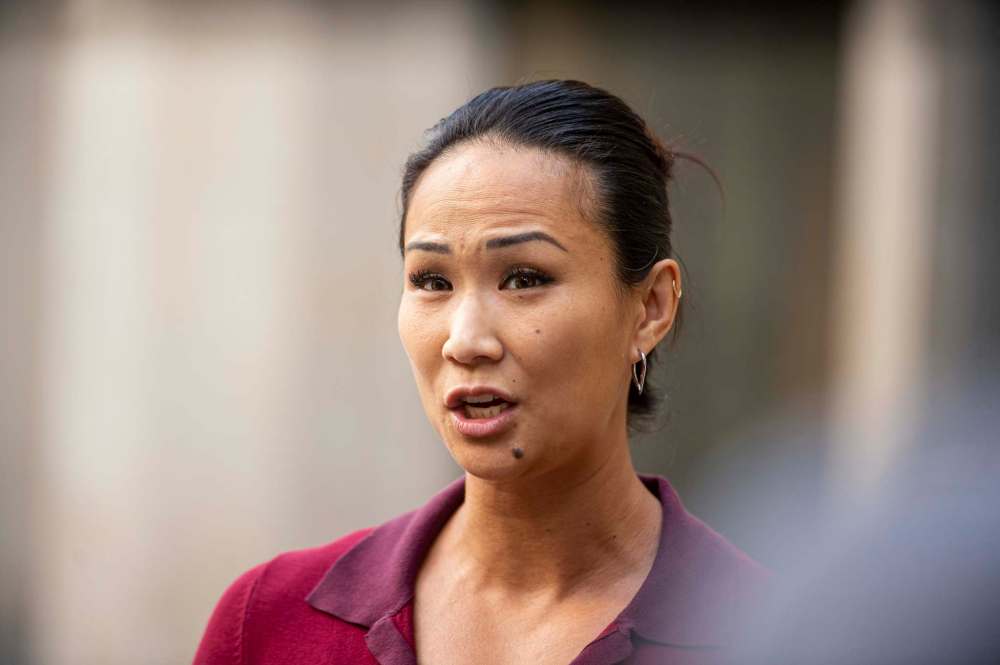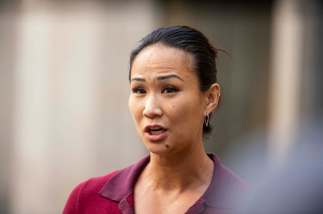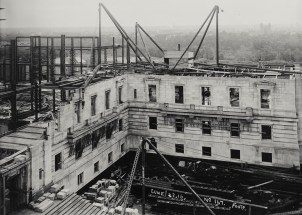Failed security check denied ‘procedural fairness’: Santos
Read this article for free:
or
Already have an account? Log in here »
To continue reading, please subscribe:
Monthly Digital Subscription
$0 for the first 4 weeks*
- Enjoy unlimited reading on winnipegfreepress.com
- Read the E-Edition, our digital replica newspaper
- Access News Break, our award-winning app
- Play interactive puzzles
*No charge for 4 weeks then price increases to the regular rate of $19.00 plus GST every four weeks. Offer available to new and qualified returning subscribers only. Cancel any time.
Monthly Digital Subscription
$4.75/week*
- Enjoy unlimited reading on winnipegfreepress.com
- Read the E-Edition, our digital replica newspaper
- Access News Break, our award-winning app
- Play interactive puzzles
*Billed as $19 plus GST every four weeks. Cancel any time.
To continue reading, please subscribe:
Add Free Press access to your Brandon Sun subscription for only an additional
$1 for the first 4 weeks*
*Your next subscription payment will increase by $1.00 and you will be charged $16.99 plus GST for four weeks. After four weeks, your payment will increase to $23.99 plus GST every four weeks.
Read unlimited articles for free today:
or
Already have an account? Log in here »
Hey there, time traveller!
This article was published 15/07/2020 (1972 days ago), so information in it may no longer be current.
A city councillor who was denied security clearance required for a seat on the Winnipeg Police Board says police acted arbitrarily and may rescind her resignation from the civilian governance and oversight body.
Coun. Vivian Santos (Point Douglas) said Wednesday she was reconsidering her decision to step down from the board — and is looking at all options to clear her name.
“After having considered new information and taking time to think about what happened, I do feel that the Winnipeg police have acted arbitrarily and have denied me procedural fairness,” she posted to Twitter.
“Ensuring accountability for the (Winnipeg Police Service) and City of Winnipeg is of utmost importance to me. I will provide more information in due course.”
On Tuesday, Santos resigned from her appointment to the police board after being notified she had failed its required security check. Santos said she has never been charged criminally, and city police did not tell her why such clearance was withheld.
She declined an interview request Wednesday.
Criticism of WPS involvement in issuing security clearance for Winnipeg Police Board members is not new: Louise Simbandumwe raised her concerns the credibility of the board would be undermined by police influence when she was nominated for a civilian seat at the table seven years ago.
Santos steps down from police board after failed security check

Posted:
Coun. Vivian Santos has resigned from the Winnipeg Police Board, after being denied security clearance by city police.
“I think that issue is even more pronounced right now, in light of the Black Lives Matter movement,” Simbandumwe said Wednesday. “It is absolutely critical at this time the board is seen as a fully independent oversight body.
“Essentially, the police have veto power over the people on the board, particularly if they’re conducting these checks annually.”
Simbandumwe, a human rights activist who has sat on federal advisory committees related to poverty and consumer protection, was nominated by the provincial government to the Winnipeg Police Board in 2013.
At the time, the intrusive and secretive police inquiry by the same force she was to help oversee struck her as incredibly problematic and as a conflict of interest, she said. The board provides high level oversight on police spending, strategic plans, and evaluates the performance of the WPS chief.
According to WPS, the security clearance check involves running a potential board member’s name against the police database. If the database check reveals associations with people who have been charged or faces criminal charges, the security clearance could be jeopardized, police said.
“I can see it disproportionately impacting Indigenous people, Black people, people of colour, for a variety of reasons,” Simbandumwe said, noting those communities are often overpoliced. “And so there’s more likelihood that there would have been encounters with the police, in terms of the communities that they’re connected with.
“Giving the police this amount of power is really inconsistent with the required independence of this body.”
– Abby Deshman, Canadian Civil Liberties Association criminal justice program director
“I think what that will result in is that many community leaders who would otherwise be excellent would be reluctant to apply to serve on the Winnipeg Police Board.”
Canadian Civil Liberties Association criminal justice program director Abby Deshman said members of the public should be concerned about the independence of police oversight bodies when police can veto an appointed member without any accountability or recourse measures.
“Giving the police this amount of power is really inconsistent with the required independence of this body,” she said.
Police databases contain a wealth of information on individuals not necessarily related to criminal activity — mental health calls, protest and political activity, former friends — which can form part of a background check and lead to “deep unfairness,” Deshman said.
“When we just give these types of decontextualized security checks, it ends up discriminating against people who are already overpoliced and excluding people unfairly from a wide variety of positions,” she said.
Under the Winnipeg Police Board Bylaw, all potential board members “must pass background security checks including, without limitation, any background security checks” required under the Police Services Act.
Board chairman Coun. Markus Chambers (St. Norbert-Seine River) said he wants to see a third party, other than the Winnipeg police, perform security clearance checks for board appointees.
“That way it’s more of a transparent process and allows for contributions from those who might be eliminated from consideration,” he said.
danielle.dasilva@freepress.mb.ca

Our newsroom depends on a growing audience of readers to power our journalism. If you are not a paid reader, please consider becoming a subscriber.
Our newsroom depends on its audience of readers to power our journalism. Thank you for your support.








